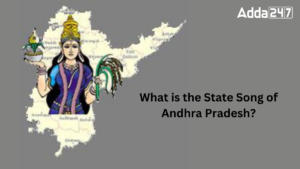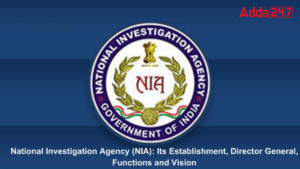Chief Ministers in India play a pivotal role in the governance structure, overseeing the executive, legislative and budgetary functions of their respective states. One crucial aspect of their position is the compensation they receive, a matter that has often sparked debates and discussions. This article delves into the intricacies of Chief Minister salaries in India, exploring the variations across states, the constitutional provisions governing their remuneration and the factors influencing these salaries.
Chief Ministers Salary in India Per Month – Structure
The salary of Chief Ministers in India varies depending on the state, with monthly salaries ranging from Rs.1,25,000 to Rs.4,00,000 as of 2023, excluding additional allowances like house, travel and telephone allowances, which differ across states.
The role of Chief Minister is highly influential in state politics, being the leader of the state government and overseeing all departments. Chief Ministers also hold a prominent position in the Union Cabinet, typically serving as the most senior minister in the state cabinet.
The issue of Chief Ministers’ salaries has been a contentious matter in India, especially at the state level. Given the significance of the position, Chief Ministers often negotiate for higher salaries, reflecting the crucial responsibilities associated with leading a state government.
Salary of Chief Ministers of India – Constitutional Provisions
According to the Indian Constitution, the appointment of the Chief Minister and other ministers is carried out by the Governor of each state, as outlined in Article 164. Across the 28 states and 8 Union Territories in the country, Chief Ministers receive a monthly salary of their services. However, the Constitution does not explicitly state the specific salaries for these positions.
The salaries mentioned in the Second Schedule serve as an interim arrangement until state legislature makes a final determination on the compensation for Chief Ministers and ministers. This framework ensures flexibility in setting salaries, allowing for adjustments based on the specific circumstances and decisions of each state.
Chief Ministers Salary in India Rupees – State Wise List
Chief Ministers in different Indian states receive varying salaries, including compensation for their roles as Chief Minister and as Members of the Legislative Assembly (MLA) or Legislative Council (MLC). Wealthiest states tend to offer higher salaries to their Chief Ministers, while economically challenged regions, particularly in the North East, provide comparatively lower salaries. Notably, only three states offer Chief Ministers salaries exceeding those of state governors, these states are:
- Telangana – Rs.410,000
- Delhi – Rs.390,000
- Uttar Pradesh – Rs.365,000
Here is the complete list of salaries of Chief Ministers in India:
| Chief Ministers Salary in India | ||
| S. No. | State and UT | Salary (per month in Rs.) |
| 1. | Telangana | Rs.410,000 |
| 2. | Delhi | Rs.390,000 |
| 3. | Uttar Pradesh | Rs.365,000 |
| 4. | Maharashtra | Rs.340,000 |
| 5. | Andhra Pradesh | Rs.335,000 |
| 6. | Gujarat | Rs.321,000 |
| 7. | Himachal Pradesh | Rs.310,000 |
| 8. | Haryana | Rs.288,000 |
| 9. | Jharkhand | Rs.272,000 |
| 10. | Madhya Pradesh | Rs.255,000 |
| 11. | Chhattisgarh | Rs.230,000 |
| 12. | Punjab | Rs.230,000 |
| 13. | Goa | Rs.220,000 |
| 14. | Bihar | Rs.215,000 |
| 15. | West Bengal | Rs.210,000 |
| 16. | Tamil Nadu | Rs.205,000 |
| 17. | Karnataka | Rs.200,000 |
| 18. | Sikkim | Rs.190,000 |
| 19. | Kerala | Rs.185,000 |
| 20. | Rajasthan | Rs.175,000 |
| 21. | Uttarakhand | Rs.175,000 |
| 22. | Odisha | Rs.160,000 |
| 23. | Meghalaya | Rs.150,000 |
| 24. | Arunachal Pradesh | Rs.133,000 |
| 25. | Assam | Rs.125,000 |
| 26. | Manipur | Rs.110,000 |
| 27. | Nagaland | Rs.110,000 |
| 28. | Tripura | Rs.105,0000 |
Factors Affecting Salary of Chief Ministers in India
The determination of Chief Ministers’ and other ministers’ salaries in India involves considering several factors:
- Source of Payment: Ministers receive their salaries from the state government of the region they represent.
- State-specific Pay Scales: Each state follows a distinct pay scale for ministers, leading to a unique salary structure.
- Variation in Pay Scales: Differences in the seniority and competence of ministers across states contribute to variations in their pay scales.
- Workload and Responsibilities: Ministers’ salaries take into account the workload and responsibilities associated with their roles in the state government.
- Comparison with Officers’ Pay Scales: The current pay scales of officers within the state are considered when determining ministers’ salaries, ensuring a balanced and equitable compensation structure.
Appointment of Chief Minister in India
According to the Indian Constitution, the appointment of the Chief Minister and other ministers is carried out by the Governor of each state, as outlined in Article 164. Article 164 states that the Governor has the responsibility of appointing the Chief Minister and other ministers.
Eligibility of Chief Ministers in India
To be eligible for the position of Chief Minister in India, the Constitution outlines specific qualifications:
- The individual must be a citizen of India.
- Eligibility requires being a member of the state legislature.
- The candidate must be 25 years of age or older.
Roles and Responsibilities of Chief Ministers in India
The Chief Minister (CM) in India holds a pivotal position with a range of crucial roles and responsibilities:
- Executive Oversight: As the executive head of the state government, the Chief Minister supervises all executive departments. Their roles involve ensuring the effective implementation of policies, programs and the administration of government services.
- Legislative Involvement: The Chief Minister actively participates in the legislative process, introducing bills and legislation to the state assembly. They also oversee the enforcement of laws and regulations enacted by the state assembly.
- Budget Management: Responsible for formulating and presenting the state budget, the CM guides the allocation of funds for diverse government initiatives, programs and projects. This role is vital in determining financial priorities.
- State Representation: The Chief Minister serves as the representative of the state in various national and international forums such as the National Development Council and Inter-State Council. They contribute to key committees and commissions.
- Law and Order Maintenance: Overseeing the state’s police force, the Chief Minister is tasked with maintaining law and order. They play a crucial role in ensuring public safety and security.
- Emergency Management: During natural disasters, public emergencies, or crises, the Chief Minister takes a central role in coordinating relief efforts. Their focus is on safeguarding citizens and managing the impact of emergencies.
- Development and Welfare Promotion: The Chief Minister actively promotes overall state development programs and schemes aimed at enhancing the quality of life for the state’s residents.
Find More General Studies News Here



 Who is the Inventor of the Gramophone?
Who is the Inventor of the Gramophone?
 What is the State Song of Andhra Pradesh...
What is the State Song of Andhra Pradesh...
 National Investigation Agency (NIA): Its...
National Investigation Agency (NIA): Its...
